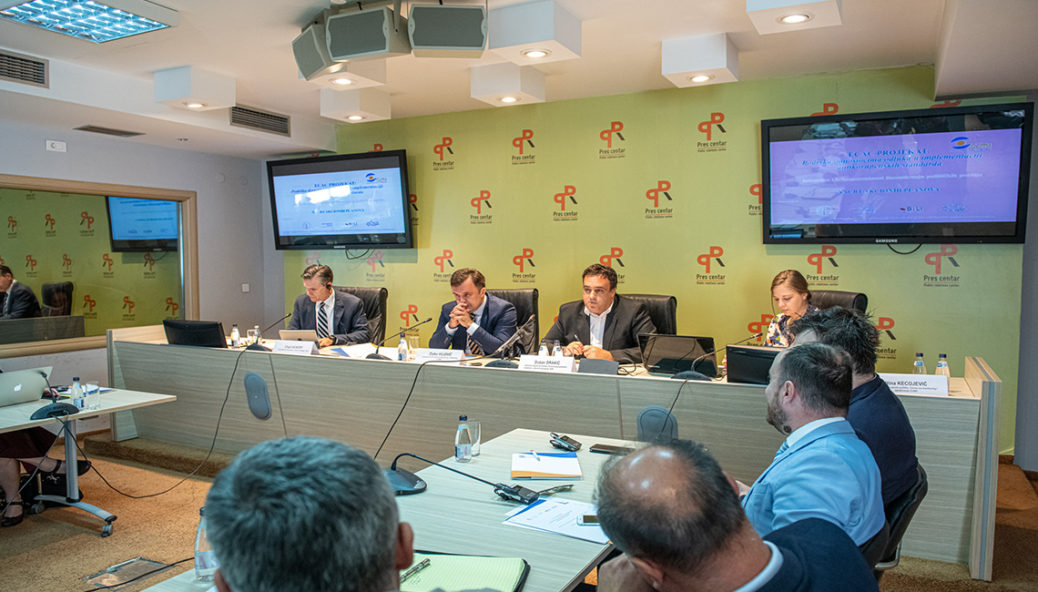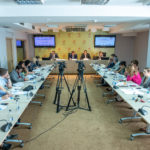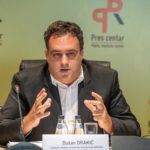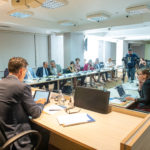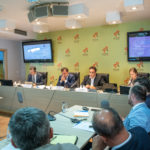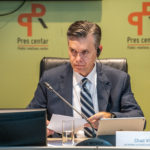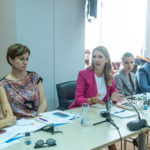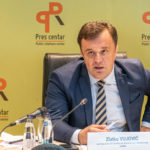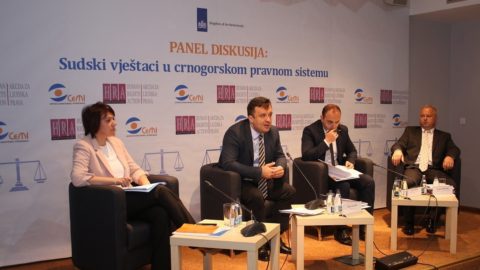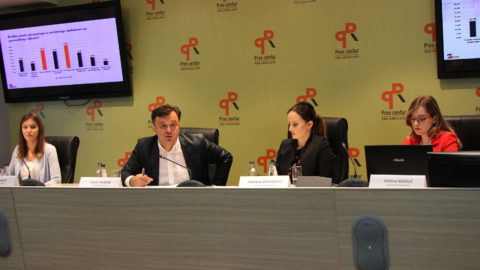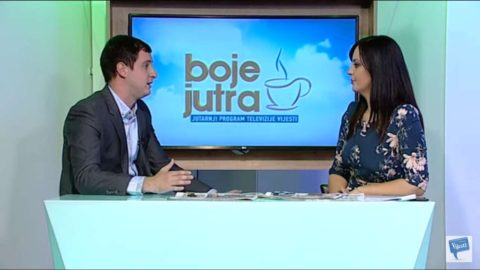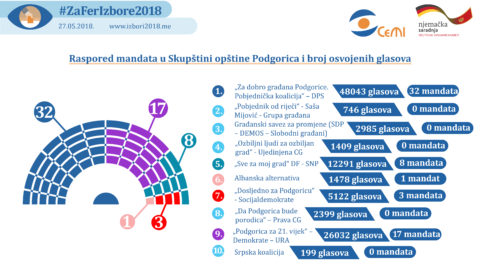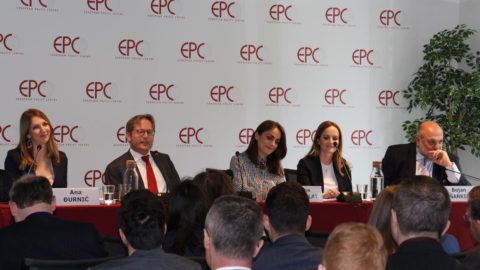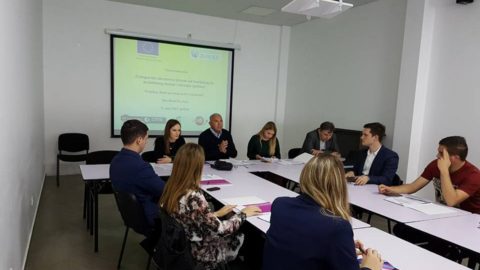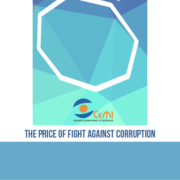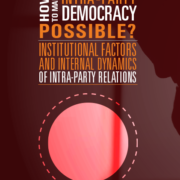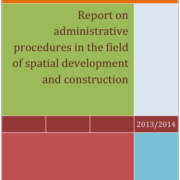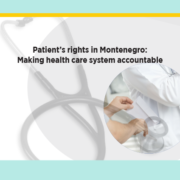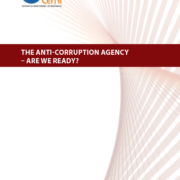Political influence and a selective approach to the work of the Anti-Corruption Agency (ACA) preclude an effective system for controlling the financing of political entities and election campaigns.
This was announced at a roundtable on “Integrity and transparency of political party financing” organized by the Monitoring and Research Centre (CeMI), in cooperation with the International Foundation for Electoral Systems (IFES), Central and Eastern European Legal Initiative (CEELI), Bulgarian Institute for Election Systems legal initiatives (BILI) and the Romanian Expert Forum, as part of the ECAC project entitled “Supporting Stakeholders in Implementing Anti-Corruption Standards”.
CeMIs’ president of the Governing Board, Zlatko Vujovic, said that improving the control and transparency of financing of political parties and election campaigns are one of the key priorities for securing conditions for fair and free elections.
“Numerous problems in the field of financing political entities and election campaigns are not new, we have been fighting this problem for over 20 years. We have witnessed a variety of abuses, from misuse of state resources to various other forms of creating privileged positions for certain political parties. On the other hand, the control system does not work and needs to be significantly improved and strengthened. An institution like the ACA, which is under direct political influence and whose personnel come from within the governing coalition or with their approval, cannot indiscriminately and effectively control the financing of political entities. Improving the legislative framework, with the depoliticization of key institutions, is a prerequisite for the system to function. CeMI has made a number of recommendations to improve the solutions contained in the Political Party Financing Act, and we will continue to do so. It is up to the decision makers and representatives of the political structures to hear about it”, Vujovic said.
He explained that the presented Action Plans concern the GRECO (Group of States against Corruption) recommendations.
“We chose GRECO’s recommendations because our aim is, through this approach, to go to what are the recommendations of international organizations”, Vujovic said.
Senior Research, Learning and Strategy Director at the International Foundation for Electoral Systems (IFES) Chad Vickery said that at CEMI they had recognized a significant partner in improving the fight against all forms of corruption and would contribute through sharing best international experiences.
The head of the department for controlling the financing of political entities and election campaigns at the Anti-Corruption Agency (ACA), Dusan Drakic, said that he did not recognize the political influence on their work but that they indiscriminately approach their work. He also noted that the institution had published more than 58 thousand documents in the last three years.
“We have previously analyzed this data, controlled it in accordance with the law, but I believe that the law did not articulate in the right direction how transparency of the use of public resources in the election process should be ensured”, Drakic said.
He said there was no obligation to submit accurate and complete reports to political entities, which he considered to be one of the major problems in the legislative framework.
He noted that the law must be improved to a significant extent and that they have already proposed dozens of amendments in this direction. Drakic said a system has been put in place that allows for effective law enforcement, but that there is room for progress.
Public Policy Researcher at the Centre for Monitoring and Research (CeMI), Nina Kecojevic, explained that the Action Plan is a product of continuous cooperation and consultation with local decision makers as well as with international partners.
“The common position of political parties and civil society organizations is that the existence of political influence and a selective approach prevents the ACA from properly monitoring political funding, which diminishes the ability to exercise its legal function”, Kecojevic said.
She stated that the Action Plans primarily focus on strengthening the capacity of the non-governmental sector to monitor and advocate for further reforms within EU integration, as well as to make recommendations for legal and institutional changes.
“In addition, as an integral and indispensable part of these processes, these Action Plans will include a series of activities aimed at raising awareness of the importance of financing in shaping Montenegrin policy. GRECO’s first recommendation that we have addressed is the introduction of clear rules and guidelines regarding the use of state resources for party activities and election campaigns”, said Kecojevic.
“Despite the many restrictions contained in the law, we are witnessing that, especially during the election period, there are various abuses that lead to the rooting of undemocratic practices such as vote buying and bribery. We believe that better cooperation of the NGO sector with competent institutions would be fruitful in ensuring more transparent and proactive disclosure of data, and that monitoring could contribute to the establishment of rules”, said Kecojevic.


 Montenegrin
Montenegrin